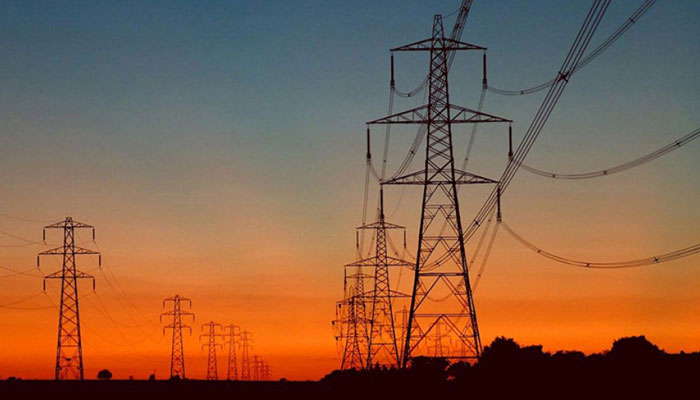Circular debt swells Rs260bln in 10 months
ISLAMABAD: Circular debt swelled by Rs260 billion during the first 10 months of the current fiscal year of 2021/22, although the government controlled the buildup during the period, officials said on Tuesday.
The power division submitted the circular debt report for the month of April 2021 to a meeting of the cabinet committee on energy held under the chairmanship of Minister for Planning, Development, and Special Initiatives Asad Umar.
It was informed that the circular debt buildup during July and April was Rs260 billion which was considerably lower than the Rs449 billion buildup, which reflected an improvement of Rs189 billion over the last year.
The committee appreciated the improvement in circular debt management and directed that power division should work with finance division to make further improvements in the system.
The government had rolled out a comprehensive circular debt reduction program at the start of the last year to improve viability of the power sector and arrest the accumulation of arrears. Accordingly, power tariffs were increased in the initial months of FY20 to pass on the impact of rising capacity charges and fuel price adjustments. This had helped improve gross revenues in this sector. In contrast, the growth in intermediate consumption was modest due to a shift in the fuel mix in favor of cheaper sources, such as hydel and coal.
“Pricing and governance problems in the power sector need to be addressed as these not only represent significant quasi-fiscal risk, but have also dented the competitiveness of the economy,” the State Bank of Pakistan (SBP) said in a report.
The energy sector strategy included a circular debt reduction plan, adopting amendments in the National Electric Power Regulatory Authority act to ensure automaticity of tariff revisions and notifications, improving collections, and subsidy rightsizing. Infrastructure investment to reduce technical losses, anti-theft drives, and upward tariff adjustments during the early months of FY20, had helped arrest the growth in arrears.
“However, postponement of tariff adjustments for monthly fuel and quarterly capacity payments since January, and payment deferrals from March onwards, diminished these initial gains,” said the SBP. “While the implementation of these adjustments would help correct immediate payment shortfalls, the long-term solution to the pricing issues (especially with respect to capacity payments) is more likely to be influenced by how the prospective revisions in the power purchase agreements with the IPPs roll out. Furthermore, a substantive progress on the Disco’s governance, streamlining of tariff adjustments, and upgradation of transmission and distribution infrastructure, will remain key in improving the overall viability of the power sector.”
Petroleum division also apprised the committee of the progress on the establishment of new LNG terminals.
-
 Northern Lights: Calm Conditions Persist Amid Low Space Weather Activity
Northern Lights: Calm Conditions Persist Amid Low Space Weather Activity -
 'Look What Andrew Has Done': Meghan Markle Defended On Jeremy Vine Show
'Look What Andrew Has Done': Meghan Markle Defended On Jeremy Vine Show -
 Apple, Google Agree To Make 'app Store' Changes Over UK Regulator Concerns
Apple, Google Agree To Make 'app Store' Changes Over UK Regulator Concerns -
 Autodesk Files Lawsuit Against Google Over AI Video Tool Trademark Dispute
Autodesk Files Lawsuit Against Google Over AI Video Tool Trademark Dispute -
 San Francisco 49ers Player Shot Near Post-Super Bowl Party
San Francisco 49ers Player Shot Near Post-Super Bowl Party -
 Kardashian-Jenner Clan Brings Lewis Hamilton Into The Fold: Watch
Kardashian-Jenner Clan Brings Lewis Hamilton Into The Fold: Watch -
 Meghan Markle 'quietly Dreaded' As Ex-best Friend Receives Lucrative Offer For Bombshell Memoir About Duchess
Meghan Markle 'quietly Dreaded' As Ex-best Friend Receives Lucrative Offer For Bombshell Memoir About Duchess -
 Blake Shelton, Gwen Stefani Make Big Move To Save Their Marriage
Blake Shelton, Gwen Stefani Make Big Move To Save Their Marriage -
 Google Warns Of State-sponsored Cyberattacks Targeting Defense Sector Employees
Google Warns Of State-sponsored Cyberattacks Targeting Defense Sector Employees -
 Ransom Deadline Passes: FBI Confirms ‘communication Blackout’ In Nancy Guthrie Abduction
Ransom Deadline Passes: FBI Confirms ‘communication Blackout’ In Nancy Guthrie Abduction -
 Jeff Bezos Hints At Blue Origin Moon Plans As Elon Musk Responds With Cautious Praise
Jeff Bezos Hints At Blue Origin Moon Plans As Elon Musk Responds With Cautious Praise -
 Zach Bryan Slams Turning Point USA Alternative Halftime Show: 'Embarrassing As Hell'
Zach Bryan Slams Turning Point USA Alternative Halftime Show: 'Embarrassing As Hell' -
 South Korea Blames Coupang Data Breach On 'management Failures,' Not Cyber Attack
South Korea Blames Coupang Data Breach On 'management Failures,' Not Cyber Attack -
 ‘Disgraced’ Andrew More Concerned About ‘issue Of His Legacy’ Than Epstein Links
‘Disgraced’ Andrew More Concerned About ‘issue Of His Legacy’ Than Epstein Links -
 Instagram Plans New Snapchat-style App ‘Instants’ Amid Rising AR Competition
Instagram Plans New Snapchat-style App ‘Instants’ Amid Rising AR Competition -
 Safer Internet Day 2026: Is Social Media Ban The Only Way To Protect Kids?
Safer Internet Day 2026: Is Social Media Ban The Only Way To Protect Kids?




